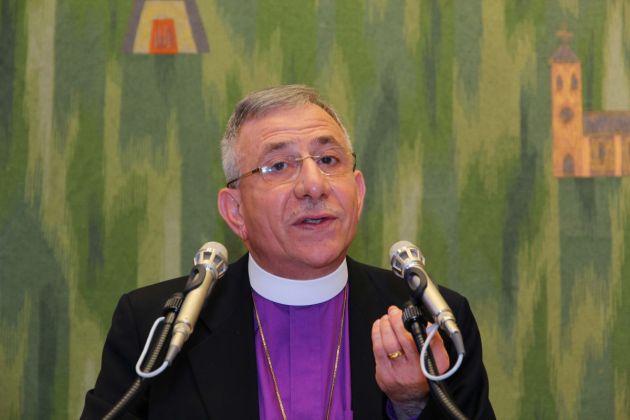In face of persecution, Lutheran leader urges Christians: Stay in Middle East

In the twenty-first century, Christians in many parts of the world are experiencing persecution, the president of the 70-million Lutheran World Federation has told a governing body meeting.
Bishop Munib A. Younan said that the solution for many of them who live as minorities is to claim equal rights as citizens, and he urged Christians especially in the Middle East to stay.
"We are seeing a global rise in extremism. Most often, extremism is supporting a political agenda even if it identifies with a religion," he said. "Nevertheless, many Christians are being harmed on a daily basis."
Younan who heads the Evangelical Lutheran Church in Jordan and the Holy Land said, "We notice what is happening in Iran, especially with the imprisonment and reported abuse of Pastor Saeed Abedini."
He was addressing the yearly meeting of the LWF's main governing body, its council on Thursday in Geneva and spoke at length on some of the challenges Christians who are minorities face in different parts of the world.
One the examples the bishop, a Palestinian who studied theology in Finland, noted is that the law of blasphemy can be used in Pakistan by some people to take revenge on their enemies or to exploit weak people or communities.
"In Nigeria, we grieve for the many deaths caused by continuing clashes between Christians and Muslims," he said, adding, "And we must remember that extremism is not the monopoly of one religion alone."
The Lutheran leader asked how Christians can give their fellows strength.
"The first step of solidarity, perhaps, is to listen to their stories. What cross do they understand they are called to bear? What does following Jesus mean to them in their context?"
At this point Younan turned to the situation facing Christians in the Arab world.
"Freedom of Christian belief and religious expression has long been a concern for Arab Christians," he said.
Events of the past two years had increased concerns.
"Our political hope is found in the commitment to equal citizenship. In Egypt, for instance, Christians doubt whether the present government is committed to either their civil protection or their continued existence.
"Christians in Syria continue to look at the destruction of their sister communities in Iraq and wonder if they will be able to remain in their country, the place where disciples of Jesus were first called Christians," said Bishop Younan.
The Lutheran leader said the Middle East Council of Churches is a common voice for Christians.
"The Middle East is boiling, and we do not yet know what the outcome will be. I look to you, my sisters and brothers, to accompany my church and my sisters and brothers in the Middle East, all of us fallible followers of Jesus Christ."